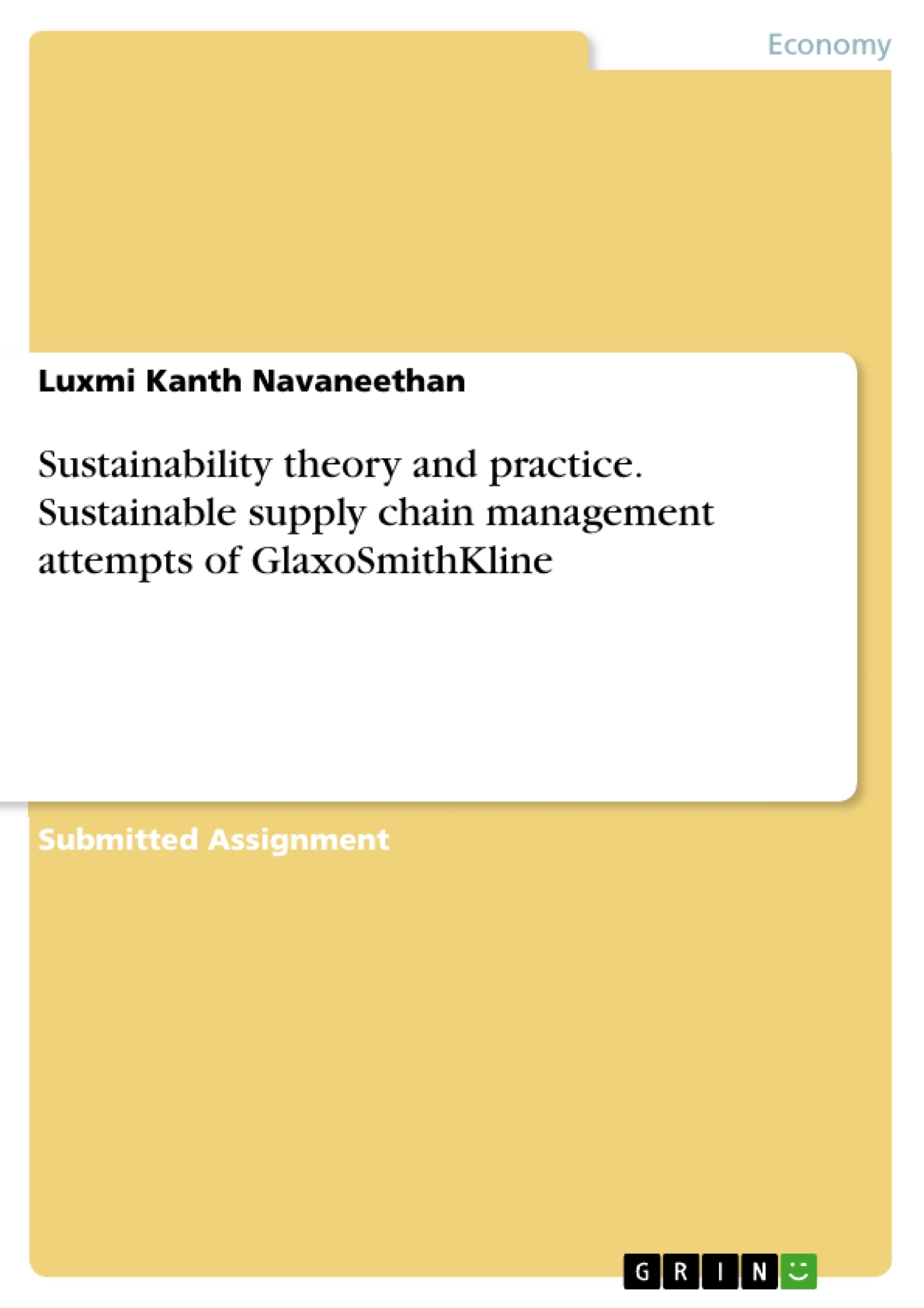Report on sustainable supply chain management attempts to integrate environmental, economic and social issues into normal supply chain practice. Defining the word sustainability is somewhat hard as it contains several characteristics depending on the point of understanding. Though, looking at the word beginning, sustainability is obtained from the Latin word “sustinere” which literally means “to hold up”. When looking up in various vocabularies, sustainability has the denotation of “preserve”, “support” or “endure”.
Business sustainability is called as the management of the triple bottom line, it is a process by where corporations control their economic, social and environmental risks, responsibilities and prospects. Furthermore above 3 impressions are occasionally mentioned as people, planet and profit. Nevertheless, this method depends on an economical perception and do not entirely imprisonment the time component which is essential inside a sustainable business.
Table of Contents
- Answer Section 1
- Sustainability Literature Review
- Sustainability as a Concept in Business
- Supply Chain Sustainability in GlaxoSmithKline
- Environmental Sustainability in GlaxoSmithKline
- Reducing Water Impact & Waste
- Answer Section 2
- Sustainability in Supply Chain Developing
- Social & Economic Sustainability for Business
- Developing Talent
- Protecting People (Health & Safety)
- Ethical Conduct
- Answer Section 3
- Answer Section 4
Objectives and Key Themes
This report aims to analyze GlaxoSmithKline's (GSK) approach to sustainability within its supply chain. It examines GSK's sustainability initiatives across environmental, social, and economic dimensions, evaluating their effectiveness and identifying areas for improvement. The report also reflects on the project management process involved in its creation.
- Sustainability in the pharmaceutical industry
- GSK's supply chain sustainability strategies
- Environmental impact reduction (carbon footprint, water usage, waste management)
- Social responsibility (employee well-being, health and safety, ethical conduct)
- Economic sustainability and value creation
Chapter Summaries
Answer Section 1: This section lays the groundwork by defining sustainability, exploring its relevance in a business context, and introducing GlaxoSmithKline (GSK) and its commitment to sustainability. It delves into the literature on sustainability, presenting various interpretations of the term and emphasizing its multifaceted nature, encompassing economic, social, and environmental aspects often represented by the "triple bottom line." The section then introduces GSK's specific sustainability goals and outlines its efforts in reducing its environmental impact, focusing on carbon footprint reduction, water conservation, and waste management initiatives. Detailed examples illustrate GSK's approach, including specific targets, achieved reductions, and challenges faced in implementing these strategies globally. The chapter highlights the interconnectedness of these initiatives and their contribution to GSK's overall sustainability strategy.
Answer Section 2: This section delves into the development of sustainable practices within GSK's supply chain, emphasizing the integration of sustainability into supply chain management activities. It highlights the importance of robust monitoring of supply chain operations for creating a more sustainable and environmentally friendly business model. GSK's partnerships with global organizations for transparency are also discussed. The section further explores social and economic sustainability for businesses, outlining GSK's initiatives in talent development, worker health and safety, and ethical conduct. Specific examples are provided, including data on injury rates, employee training programs (e.g., code of conduct training), and initiatives to promote employee well-being. The chapter underscores the crucial role of social and economic factors in achieving overall supply chain sustainability.
Keywords
Sustainability, supply chain management, GlaxoSmithKline (GSK), environmental sustainability, social responsibility, economic sustainability, carbon footprint, water management, waste reduction, ethical conduct, employee well-being, health and safety, triple bottom line, sustainable development.
GlaxoSmithKline Supply Chain Sustainability Report: FAQ
What is the purpose of this report?
This report analyzes GlaxoSmithKline's (GSK) approach to sustainability within its supply chain. It examines GSK's sustainability initiatives across environmental, social, and economic dimensions, evaluating their effectiveness and identifying areas for improvement. It also reflects on the project management process.
What are the key themes explored in the report?
Key themes include sustainability in the pharmaceutical industry, GSK's supply chain sustainability strategies, environmental impact reduction (carbon footprint, water usage, waste management), social responsibility (employee well-being, health and safety, ethical conduct), and economic sustainability and value creation.
What topics are covered in Answer Section 1?
Answer Section 1 defines sustainability, explores its relevance in business, introduces GSK's sustainability commitment, and delves into the literature on sustainability. It focuses on GSK's efforts in reducing its environmental impact, including carbon footprint reduction, water conservation, and waste management, providing detailed examples and highlighting the interconnectedness of these initiatives.
What topics are covered in Answer Section 2?
Answer Section 2 explores the development of sustainable practices within GSK's supply chain, emphasizing the integration of sustainability into supply chain management. It highlights the importance of monitoring supply chain operations, GSK's partnerships for transparency, and initiatives in talent development, worker health and safety, and ethical conduct. Specific examples, including data and initiatives, are provided.
What does the report say about environmental sustainability at GSK?
The report details GSK's initiatives to reduce its environmental impact, focusing on areas such as carbon footprint reduction, water conservation, and waste management. Specific targets, achieved reductions, and challenges are discussed.
How does the report address social and economic sustainability?
The report examines GSK's social and economic sustainability initiatives, including talent development programs, efforts to improve worker health and safety, and measures to promote ethical conduct. Specific examples and data are used to illustrate these initiatives.
What is the overall structure of the report?
The report includes a table of contents, objectives and key themes, chapter summaries, and keywords. It's structured into several answer sections, each focusing on specific aspects of GSK's sustainability approach.
What keywords are associated with this report?
Keywords include Sustainability, supply chain management, GlaxoSmithKline (GSK), environmental sustainability, social responsibility, economic sustainability, carbon footprint, water management, waste reduction, ethical conduct, employee well-being, health and safety, triple bottom line, and sustainable development.
- Quote paper
- Luxmi Kanth Navaneethan (Author), 2019, Sustainability theory and practice. Sustainable supply chain management attempts of GlaxoSmithKline, Munich, GRIN Verlag, https://www.grin.com/document/538254




